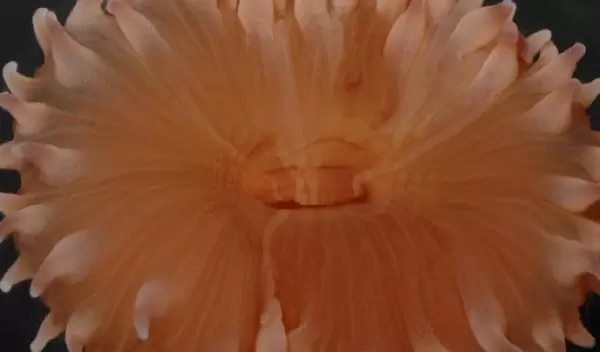
Antarctic deep-sea coral larvae may be resistant to climate change
The larval health of an Antarctic cold-water coral species may be resistant to warming water temperatures, a University of Maine study finds, bringing new hope for the climate change resilience of deep-sea ecosystems in the Western Antarctic Peninsula.
The study was published in the journal Coral Reefs. The research was funded by the U.S. National Science Foundation.
The past few decades have shown unprecedented levels of warming in Earth's polar regions. To date, the West Antarctic Peninsula has the most dramatic warming in the Southern Hemisphere, with expected water temperature increases between 0.5 and 1.9 degrees Celsius by 2100.
Because they are long-lived and slow-growing, deep-sea corals in these Antarctic waters will not adapt well to changing temperatures, particularly in the sensitive larval stage. Or so scientists thought.
"Although their habitat is now changing faster than other places around the world, most marine animals in the Southern Ocean are thought to have a limited capacity to adapt to environmental shifts," says Julia Johnstone, principal author of the study. "Especially during the larval stage, when developmental processes are organizing and laying the foundations for key life-long functions like prey capture and growth, those environmental changes can have an outsize impact."
To test this hypothesis, researchers at the University of Maine and their colleagues at Temple University, the Bigelow Laboratory for Ocean Sciences and Haverford College looked at the larval development of the coral Flabellum impensum in a series of laboratory experiments that mimicked the increased seawater temperatures predicted for the 21st century.
The findings show that while temperature did not impact larval settlement, mortality or stress, warmer waters did have a significant impact on the developmental rate. Larvae in warmer temperatures developed faster than those in colder conditions.
"It's easy to imagine that these small, tiny larvae are fragile, but this study shows otherwise — they are more robust than we thought," says Rhian Waller, co-author of the study.
The study suggests that these larvae are tolerant of warming temperatures during their most sensitive stages, which, the scientists say, is significant for the rapidly changing deep-sea ecosystem of the West Antarctic Peninsula.
"This research demonstrates that the environment these corals prefer extends beyond the areas in which we normally see them," says Francisco (Paco) Moore, an NSF program director. "What is not yet clear is how they will compete as warm-water species invade their rapidly changing habitat."
